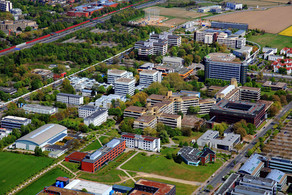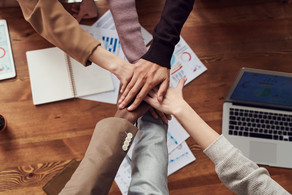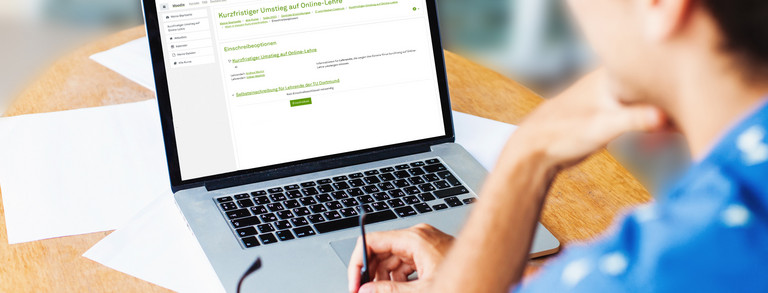Student conference on sustainability at the University of Mosul
- TU News
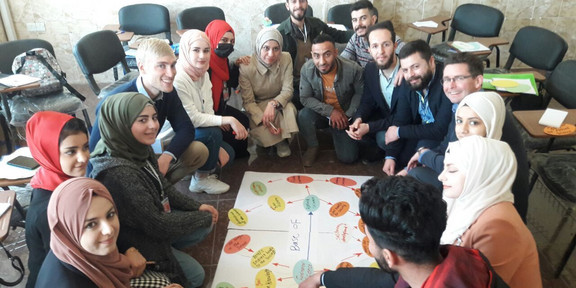
The Iraqi city of Mosul was occupied by the so-called Islamic State from 2014 to 2017. Large parts of the city were destroyed at that time. The RESI project has therefore been holding events since 2016 that are intended, among other things, to help mediate peace and promote academic discourse. In numerous workshops, the participants of this year's student conference addressed the question of how sustainable development can be promoted in Mosul and the region, discussing different perspectives and concrete project ideas.
One of the workshops was conducted by Dr. Julian Holstein and Dr. Lukas Stratmann from the Faculty of Chemistry and Chemical Biology, who discussed the importance basic research can have for sustainable reconstruction and social development. The goal of the lecturers was to convey the value that science and research have even without direct application. Also on site in Mosul were project leader Prof. Dietwald Gruehn and project staff Felix Senger and Dakhil Saydo Hamo from the Faculty of Spatial Planning. They attended numerous workshops and also selected the 20 best student projects. The winners can now participate in a workshop organized by the development aid organization SPARK, which will accompany them in the further development and implementation of their project ideas.
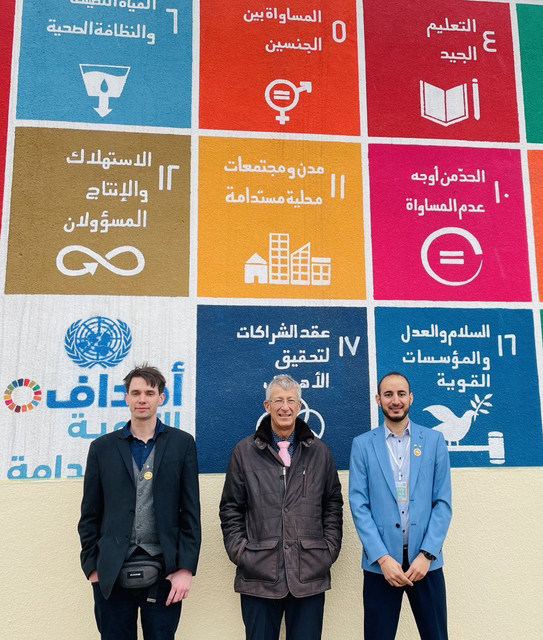
"The choice wasn't that easy, because there were many very good project ideas," says Felix Senger. For example, students are planning to develop an information app to improve medical care in the region. In another project, approaches are being developed on how to preserve cultural heritage in architecture during reconstruction. Another student idea is to use a water reservoir that already exists on the university campus to store energy.
Testing participatory teaching/learning formats.
The conference was also particularly concerned with testing participatory teaching/learning formats and student-centered learning, as this has hardly been used in teaching at the University of Mosul to date. In this context, Dr. Katrin Stolz and Dr. Markus Jahn from the Center for Higher Education had already offered a three-part online series in the run-up to the conference, in which university didactic content was conveyed and the speakers could receive individual advice on the didactic structure of their respective workshops.
The RESI project is funded by the German Academic Exchange Service (DAAD). The aim of the cooperation partners is to promote scientific and intercultural exchange between the universities in Dortmund, Graz and Mosul and to create programs for students, scientists and young professors from various disciplines.

